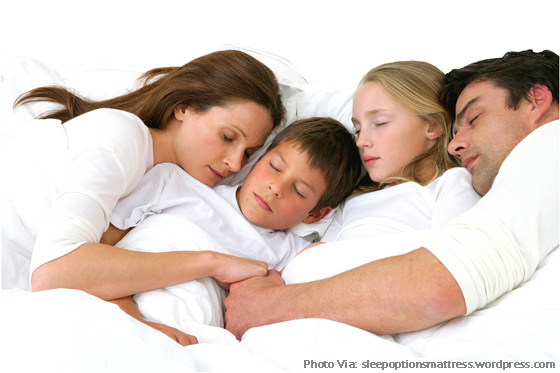Tips For Healthy Sleep
Sleep can truly be an art form of its own genre. Even though it’s something we do every night and sometimes more often, we still do not know how to sleep well or effectively. The following are some of our best tips and information on how to get healthy sleep and wake up with zest and positive energy.
Amount Of Sleep:
The number of conflicting studies on how much sleep someone needs seems to be ever growing. Nobody can seem to agree, but there are some general things we know about sleep that can tell you basically what you need to know in order to get enough rest. The general sleep need for kids is around 10 hours and for adults it’s 7.5 – 9 hours that are needed. One interesting thing to note is that lately articles and “experts” have been claiming that you only need 6 hours to feel fully rested and function well. This could be true but a study by the University of California, San Diego, found that only 3% of the population can function on that little amount of sleep. It is, in fact, a gene that these few lucky people have that makes them able to rest up in less time than others.

Sleep Myths:
There are a few myths other than the amount of sleep you need that are circulating the health blogs and magazines. The following are myths we will set straight for you in order to stop the confusion.
• You will not function any worse with just one less hour of sleep – This has been proven wrong because it has been found that just one less hour of sleep can affect how your brain functions and your response times. It slows your roll, literally. It can also be pretty damaging to your immune system and cardiovascular health. Obviously, this depends on the total amount you sleep but, in general, dropping off one hour is not quite as innocent as people think.
• Sleeping in more on weekends will help make up for the sleep you lost during the week – This will actually negatively affect your sleep cycle and make it harder to get back on the right schedule once the weekdays roll back around. Your body will possibly be relieved, but it will still need to recover from the change in sleep cycle even if you added hours.
• If you are excessively exhausted during the day, sleeping more at night will fix that problem – You know what they say, “quality over quantity.” Simply getting more sleep at night or extra sleep at night will not help if you do not get quality sleep. Making sure you can fall into a deep sleep and truly rest your body is more important than adding more hours to the sleep schedule.
Sleeping Better:
Sleeping better is a hard concept for many people to grasp and actually work for since they think simply plopping into bed and turning out the lights is enough to catch some quality ZZZs. The following tips will help you boost your sleep quality.

• Consistent Sleep Pattern – It is hard to make your sleep habits into a routine, but you will find that it will make a world of difference to the quality of sleep you have and the effectiveness of your sleep.Your circadian rhythm is meant to be just that- a rhythm, a pattern, a cycle. If it gets out of rhythm, your body will pay the price in many ways. Pick your bedtime and wake up time, stay consistent for a month and see what happens. If you can stick to it, we guarantee you will like the results.
• Sleep Apps – Everyone wakes up feeling more rested when they are woken up at the end of their sleep cycle or REM cycle. This is usually how you feel when you wake up naturally. If a natural wake up is not a luxury you can afford, try getting a sleep app for your phone or fitness band, etc. There are some awesome programs out now that will help you track your sleep and actually can track when you are in your light or heavy sleep and wake you up according to that. It is a miracle and especially if you have a hard time waking up to alarms, this is the way to go for sure.
• Bedtime Routine – Before bed, it is important to send your body the right signal that tells it to start relaxing and shutting down. In order to power down properly, try turning off all electronics an hour or two before bed. On that same note, many people read before bed but try not to use a backlit device. Read an actual book under soft lights if possible. Make sure your room is not lit by all your charging electrical devices or a computer monitor because these things interrupt the darkness needed for you to get a truly restful sleep. Keep noise to a minimum and make sure your room is cool before heading to bed as well.
